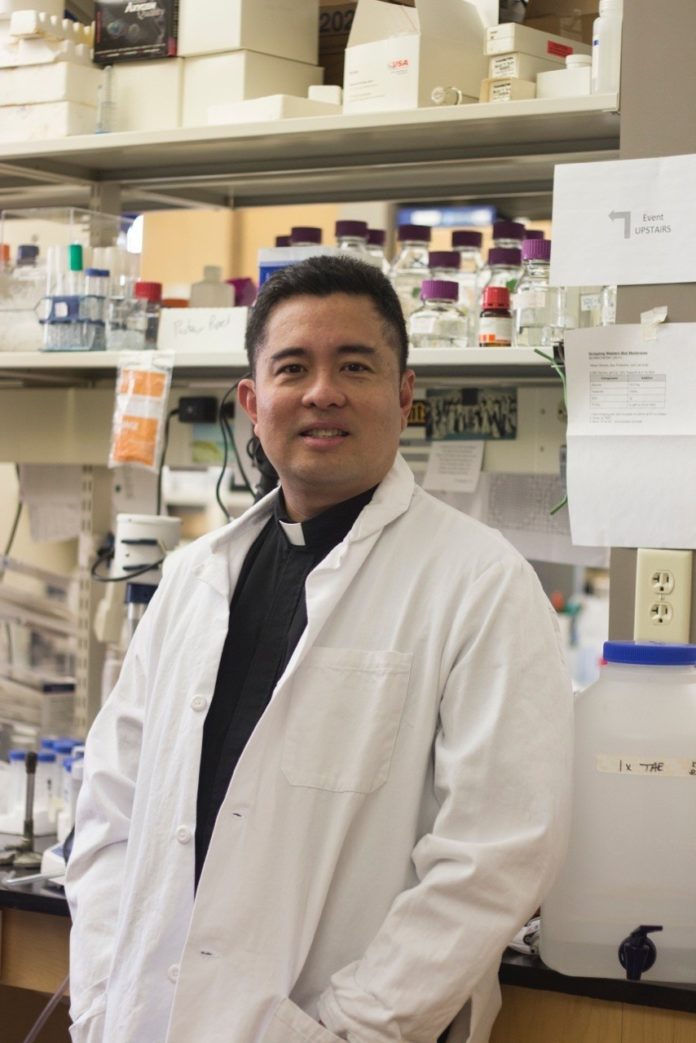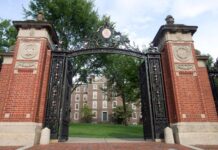
PROVIDENCE – A biologist and theologian at Providence College has been awarded a major national health grant to support research of a gene linked to several human cancers.
The Rev. Dr. Nicanor Austriaco, a priest with the Order of Preachers and an associate professor of biology, will receive a $257,049 grant in May from the National Institutes of Health/National Institute for General Medical Sciences to support a project titled, “Genetic Dissection of Yeast Bax Inhibitor Function in UPR and Calcium Signaling.” The grant runs through April 2017.
The research will involve investigating how a “Bax inhibitor-1” – a gene linked to such human cancers as lymphoma, leukemia, and prostrate and breast cancer – works. The gene is also found in a diversity of animals, plants and single-celled organisms like yeast and bacteria. Austriaco will make yeast mutants that lack the Bax inhibitor and other genes in an effort to pinpoint the gene’s normal functions during so-called “programmed cell suicide” and abnormal functions during cancers.
The research, the university said, could lead to better treatment for patients fighting cancers that are linked to the Bax inhibitor.
This is the second such grant for Austriaco in four years. His first award in 2010 was applied to research on the topic, “Genetic Identification of Sulforaphane’s Mechanism of Action in Yeast Cell Death.”
The NIH’s Academic Research Enhancement Award program supports small-scale research projects in the biomedical and behavioral sciences. The research must be conducted by faculty and students at educational institutions that have not been major recipients of NIH research grant funds.
Teaching at PC since 2005, Austriaco specializes in the biology of “programmed cell death,” the biology and ethics of stem cell research, and health care ethics and bioethics in the Catholic tradition.
He earned his bachelor’s degree from the University of Pennsylvania in 1989, a Ph.D. from Massachusetts Institute of Technology in 1996, and a licentiate in sacred theology from Pontifical Faculty of the Immaculate Conception in Washington, D.C., in 2005.












